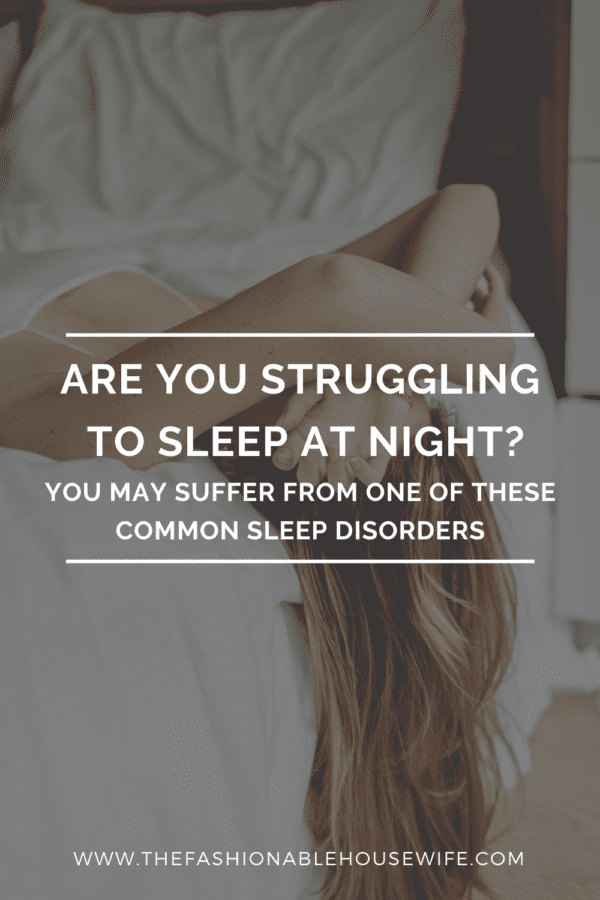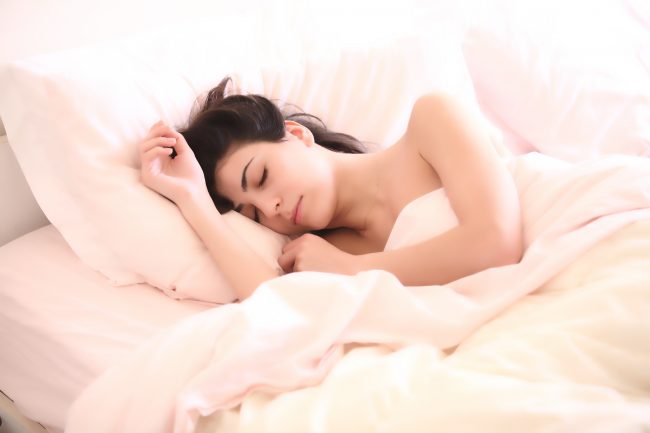
Do you find yourself lying awake at night, unable to fall asleep? When morning comes, and you are still exhausted, it may be because you suffer from a sleep disorder. Not getting enough sleep can make it difficult to do your job productively, make it unsafe for you to drive, and contribute to chronic health problems and obesity. Read on to learn more about some of the most common sleep disorders and what you can do to stop this cycle of sleeplessness.
Restless Leg Syndrome
Restless Leg Syndrome is most noticeable when you are at rest and is identified as an irresistible sensation of needing to move your legs or feet. Sometimes this is accompanied by a burning sensation, aching, tingling, or the feeling that something is crawling on your legs. This extreme discomfort makes it very difficult for you to fall asleep and sometimes even occurs while sleeping. If this is the case, you may wake up kicking or thrashing your feet or legs around. Not only does this interrupt your sleep, but it can wake your partner up too.
Some things you can do that may improve this feeling are taking a warm bath before bed, getting plenty of exercise during the day, and taking melatonin. Since you can buy melatonin online, all of these options are available to you quickly.

Insomnia
If you spend many nights unable to fall asleep or waking and not returning to sleep in the middle of the night, you may have insomnia. There are a few different causes of this condition, such as:
- changes in hormone levels
- stress and anxiety
- eating too late at night
- caffeine and alcohol
Sometimes making simple changes to what you eat or when you go to bed helps improve this condition. Make an effort to avoid drinking caffeine after lunch, so the effects wear off before bedtime and limit the amount of alcohol you consume after dinner. If your days are full of stress and anxiety, consider doing some yoga stretching or taking a relaxing bath before bedtime. Natural supplements such as melatonin also help you feel sleepy at night and make it easier for you to fall and stay asleep.
Obstructive Sleep Apnea
A common yet serious medical condition called obstructive sleep apnea is another cause of feeling tired. With this condition, you may snore during your sleep because your airway becomes blocked, and you stop breathing for a short period of time. When you stop breathing, your brain triggers your body to wake up and breathe again, therefore interrupting your sleep. It’s normal for this to happen once or twice a night, but it may happen hundreds of times a night if you have sleep apnea. When you wake this often, it prevents you from getting into the restorative phase of REM sleep and causes your body to feel exhausted from a fitful night of sleep.
Some commons signs of sleep apnea are:
- waking up with a headache in the morning
- having a sore throat when you wake up
- snoring in your sleep
- you wake up and are gasping for air
A common treatment for sleep apnea is to wear a CPAP, a machine that provides a constant flow of air to your airway to prevent blockage. If your sleep apnea is minor, adjusting the bed up a few degrees or losing weight may be enough to prevent the blockage from occurring.
Not getting enough quality sleep at night can make you feel miserable during the day. There are a number of different conditions that cause this, including restless leg syndrome, insomnia, and obstructive sleep apnea.
If you believe you have any of these sleep disorders, schedule an appointment with your doctor for further diagnosis.



